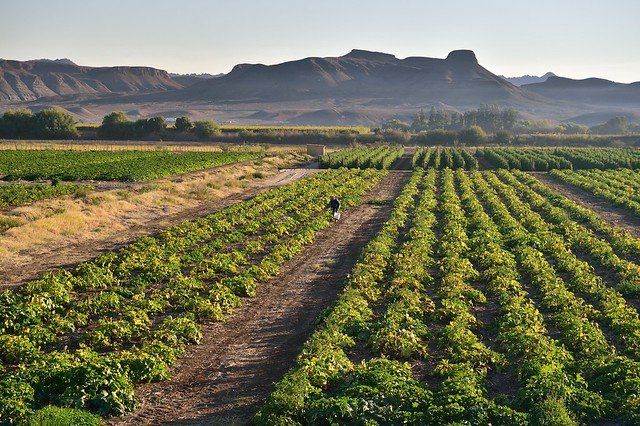The West Coast of Australia is renowned for its stunning landscapes, rich culture, and vibrant communities. Among its many attractions, sustainable cafés have emerged as significant hubs, not just for coffee enthusiasts but also for those who value environmental stewardship and community engagement. These cafés, with their eco-friendly practices, locally sourced ingredients, and emphasis on community welfare, are transforming the way we think about food and drink.
The Rise of Sustainable Cafés
 The sustainable café movement began as a response to increasing environmental awareness and concerns about the impact of traditional food systems on our planet. As consumers become more conscious of their choices, many cafés have adopted sustainable practices, making them appealing destinations for those seeking not only a great cup of coffee but also a meaningful experience.
The sustainable café movement began as a response to increasing environmental awareness and concerns about the impact of traditional food systems on our planet. As consumers become more conscious of their choices, many cafés have adopted sustainable practices, making them appealing destinations for those seeking not only a great cup of coffee but also a meaningful experience.
In the West Coast, cafés like The Little Matcha Girl in Perth and The Coffee Emporium in Fremantle exemplify this trend. They prioritise sourcing organic ingredients, reducing waste, and implementing recycling programs. These cafés have become pillars of their communities, offering spaces where people can gather and connect over shared values.
Community Engagement: A Core Value
Sustainable cafés on the West Coast are more than just places to grab a drink; they play a vital role in fostering community spirit. Many of these cafés host events that bring locals together, such as farmers’ markets, art exhibitions, and workshops on sustainability practices. By engaging with the community, these cafés help to strengthen local bonds and create a sense of belonging.
For instance, Mokador Coffee, a beloved café in Margaret River, regularly holds community clean-up days, where patrons can join in to help keep the local environment pristine. This not only raises awareness about environmental issues but also instills a sense of pride in the community. When cafés take an active role in local initiatives, they become integral parts of their neighbourhoods, encouraging others to follow suit.

Supporting Local Producers
One of the most significant aspects of sustainable cafés is their commitment to supporting local producers. By sourcing ingredients from local farmers and suppliers, these cafés reduce their carbon footprint and contribute to the local economy. This farm-to-table approach not only ensures freshness but also fosters a sense of community ownership over food systems.
Cafés like The Farm Café in the Swan Valley take this concept to heart, featuring a menu that showcases seasonal produce from nearby farms. This connection between café and producer allows patrons to appreciate the story behind their food and coffee, creating a deeper connection to the community. In turn, this encourages consumers to think critically about their purchasing decisions and the impact they have on their surroundings.
Environmental Stewardship
 Sustainability goes beyond sourcing ingredients; it encompasses every aspect of a café’s operations. Many West Coast cafés have implemented innovative practices to minimise their environmental impact. This includes using biodegradable packaging, reducing water usage, and investing in renewable energy sources.
Sustainability goes beyond sourcing ingredients; it encompasses every aspect of a café’s operations. Many West Coast cafés have implemented innovative practices to minimise their environmental impact. This includes using biodegradable packaging, reducing water usage, and investing in renewable energy sources.
For example, The Greenhouse in Perth is a perfect illustration of environmental stewardship. The café features a rooftop garden that supplies herbs and vegetables for its menu while also promoting urban farming practices. Additionally, they use solar panels to power their operations and have adopted a zero-waste policy, making them a model for sustainable business practices.
By prioritising environmental sustainability, these cafés not only contribute to a healthier planet but also inspire others to adopt similar practices. They serve as examples of how small businesses can make a significant impact through mindful choices and innovation.
The Role of Education
Many sustainable cafés also take on an educational role, informing their customers about sustainability issues and practices. Through workshops, informational signage, and community events, these cafés raise awareness about topics such as food waste, recycling, and the importance of supporting local agriculture.
The People’s Café in Albany is one such example, offering workshops on composting, gardening, and sustainable cooking. By providing resources and information, they empower their patrons to make environmentally conscious choices in their own lives. This educational approach not only helps to spread knowledge but also encourages community members to take action.
A Healthier Community
The emphasis on sustainability in cafés also contributes to a healthier community. By providing nutritious, locally sourced food options, these cafés promote healthier eating habits. Many sustainable cafés offer vegetarian and vegan options, catering to diverse dietary needs and preferences. This inclusivity encourages individuals to explore plant-based diets, which can lead to improved health outcomes.
Moreover, the focus on community and social connections fosters mental well-being. As people gather in these cafés, they create social networks that combat loneliness and isolation. The relaxed, inviting atmosphere encourages conversations and connections, making these cafés safe spaces for all community members.
Economic Benefits
The impact of sustainable cafés on local economies is significant. By prioritising local suppliers and producers, these cafés circulate money within the community, helping to create jobs and support local businesses. This economic interdependence fosters resilience within the community, allowing it to thrive even in challenging times.
Additionally, many sustainable cafés engage in fair trade practices, ensuring that farmers and producers receive a fair wage for their products. This commitment to ethical sourcing not only supports local economies but also contributes to global sustainability efforts.
Challenges and Future Directions
While the sustainable café movement is thriving on the West Coast, it does face challenges. Rising costs of organic ingredients, competition from larger chains, and the need for continual education about sustainability are ongoing hurdles. However, the resilience of these cafés and their commitment to community values position them well for the future.
As more consumers seek out sustainable options, the demand for these cafés will likely continue to grow. Future innovations in sustainable practices, such as improved recycling technologies and community-supported agriculture programs, will enhance the impact of sustainable cafés on West Coast communities.
Conclusion
Sustainable cafés on the West Coast are more than just trendy spots for a morning coffee; they are vital contributors to their communities. Through their commitment to environmental stewardship, support for local producers, and emphasis on community engagement, these cafés play a crucial role in shaping a more sustainable future.
As we continue to navigate the challenges of modern life, supporting these sustainable cafés is a step we can all take to foster community connections, promote healthier lifestyles, and contribute to a more sustainable planet. So, the next time you’re sipping your coffee at a local café, take a moment to appreciate the broader impact of your choice and the community it supports.

